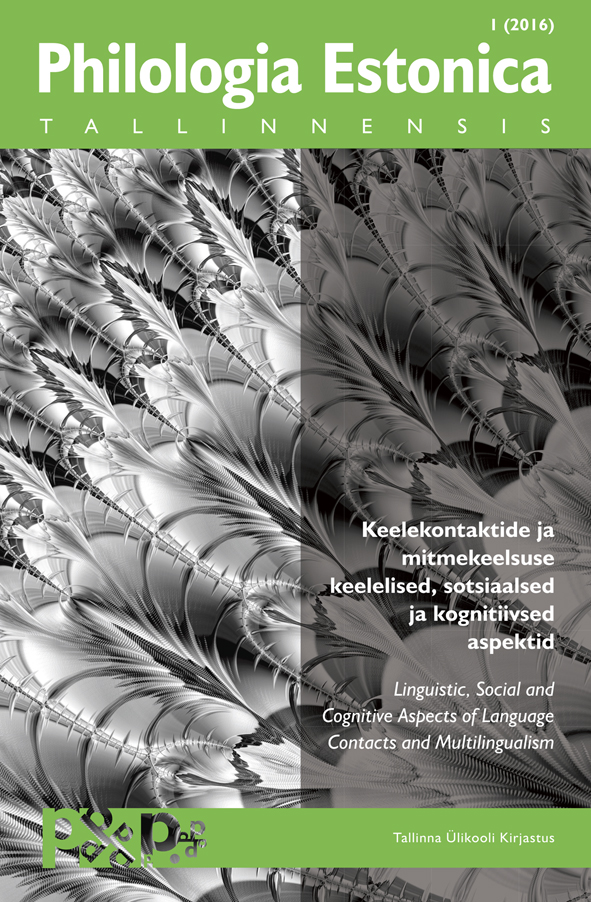
We kindly inform you that, as long as the subject affiliation of our 300.000+ articles is in progress, you might get unsufficient or no results on your third level or second level search. In this case, please broaden your search criteria.

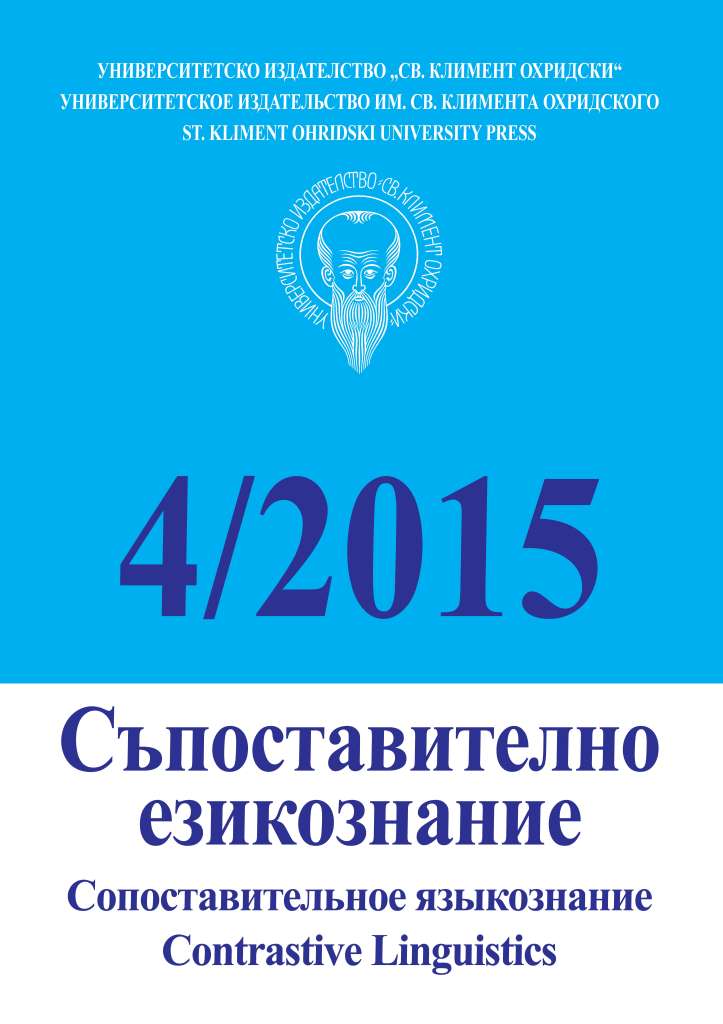
In this article inchoative verbs in three Slavonic languages: Bulgarian (southern group), Polish (western group) and Belarusian (eastern group) are analyzed. The basic reasons for the observed quantitative differences in terms of inchoative verbs in the three studied languages are explained. The adopted semantic analysis made it possible to determine the regularities in the creation of inchoative verbs and to describe the semantic classes characterized by a greater productivity of inchoative verbs in them.
More...
Sphota is a specific concept from the Indian linguistic and philosophical tradition, which has no analogue in Western linguistics. Sphota is the word in the mind or the mental sound that "illuminates" the signified. The concept is presented systematically by the ancient Indian philosopher and grammarian Bhartrihari in his treatise About the sentence and the word. Among the main features of the concept are integrity, lack of sequence and temporal specificity. It transmits its own form together with the meaning. Furthermore, the form has a leading position. From the standpoint of modern psycholinguistics, the ideas of Bhartrihari are more consonant with the connectionist language and less with the serial ones.
More...
The paper reviews the different hypotheses on the origin of the verb патя and its derivatives. The analysis applies a number of approaches: formal, semantic, synchronic and areal-georgraphic. The verb is compared to its cognates in Romanian păţi, Aromanian pat, Albanian pësoj, pësonj, Macedonian пати, and Serbo-Croatian пàтити. The forms and uses of the verb in medieval documents are traced. The research aims to answer the question whether the vulgar Latin *patīre < classical Latin pătior or the Greek πάσχω, παθαίνω is the more likely prototype or source for the Bulgarian verb. The hypothesis is formulated that the verb and its derivatives in Bulgarian, as well as in some other Balkan and South- Slavic languages, cannot be traced to a uniform, single source of origin and should be interpreted as belonging to different temporal layers of borrowings.
More...
Learning a new language can be described as “memorizing some of the grammar rules and vocabulary and to be able to use them in daily life”. Although being the most important elements to speak that language, grammar and memorizing vocabulary won’t be useful enough without a number of other tricks for the purpose of the language learner. Those tricks provide facilities for the learning of the language and take a major importance in the habit of studying of the person. In this study, the main challenges in teaching Arabic is mentioned, besides; by showing a number of facilities, it is aimed for learner to learn the language by enjoying himself.
More...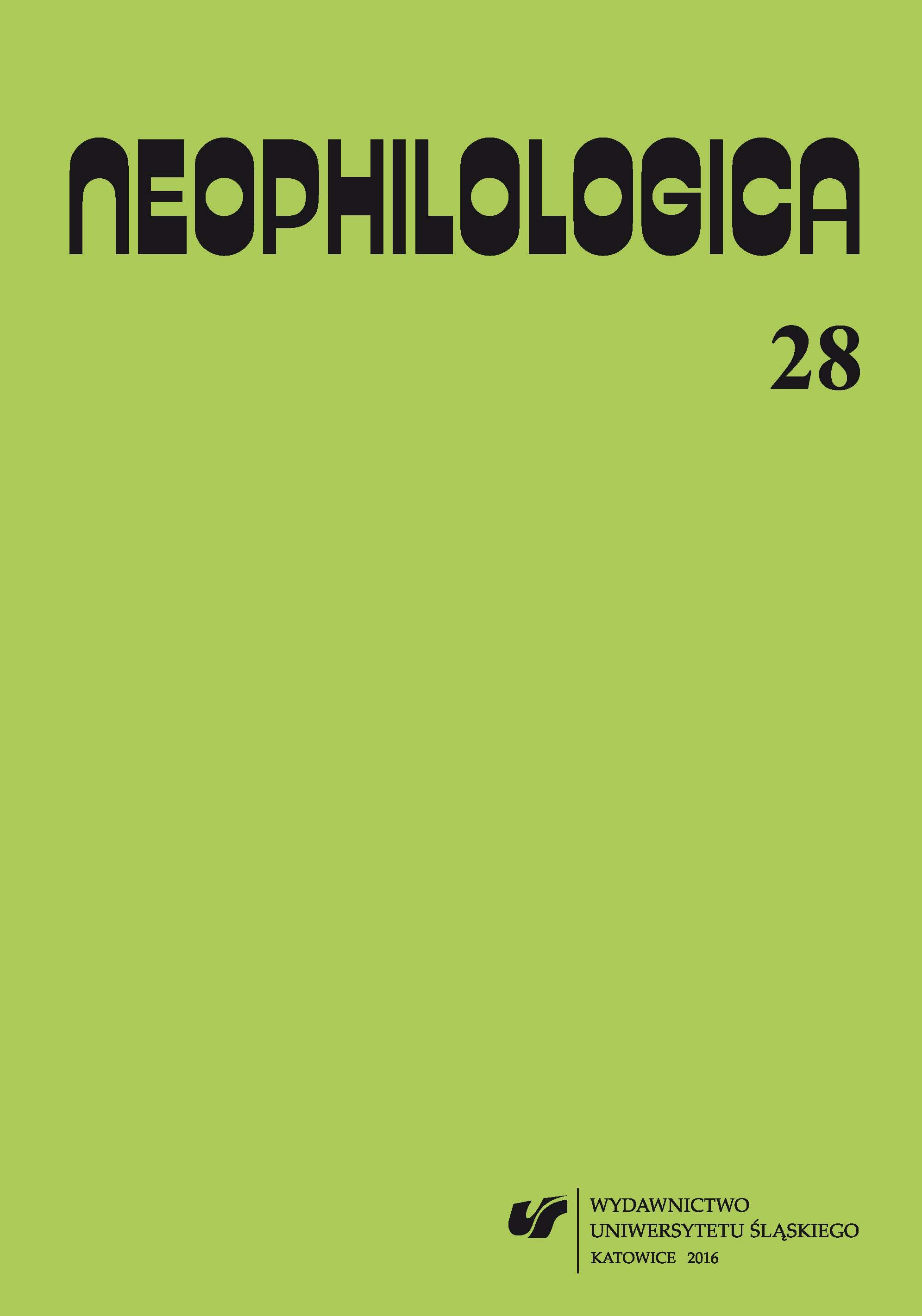
This article presents several lexical and syntactic structures characteristic of scientific texts. Markers of comparison such as être identique à, différer de, comme are one element of the analyzed structures. The proposed analyses treat phraseology in a wider context (phraséologie étendue) and are a part of a broader research on motive.
More...
The present paper examines in detail the predicative nouns of smell and of sound in contemporary Russian. It more specifically focuses on the structures ‘Noun of smell or odor + specifiers (“noun” in the genitive)’. The predicates mentioned are divided into groups according to the semantic nature of the specifiers: concrete noun, abstract noun, place name. They express the cause of the smell or sound. The features of each subset are described emphasizing the similarities and differences existing between the sounds on the one hand and the smells on the other.
More...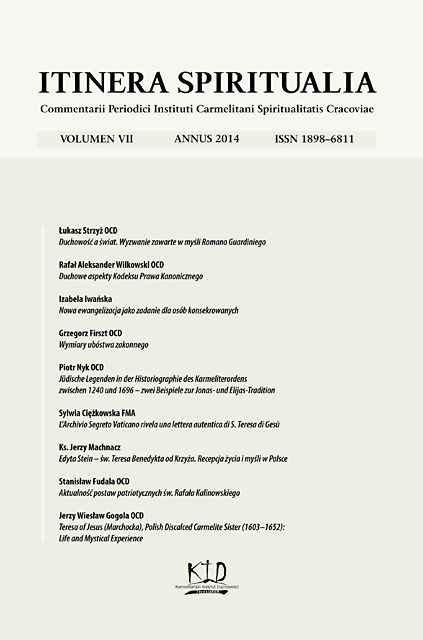
Jewish Legends and old rabbinical Traditions could be find in the Hystoriography of the Carmelite Order. In its Beginnings in Europe the Legends served to defend the biblical Identity of the Order. The Article deals with a Study about two Examples of Jewish Legends: 1. Jonah as the Son of the Widow, 2. Elijahs Water-Miracle (10 Springs Gushing from his Fingers).
More...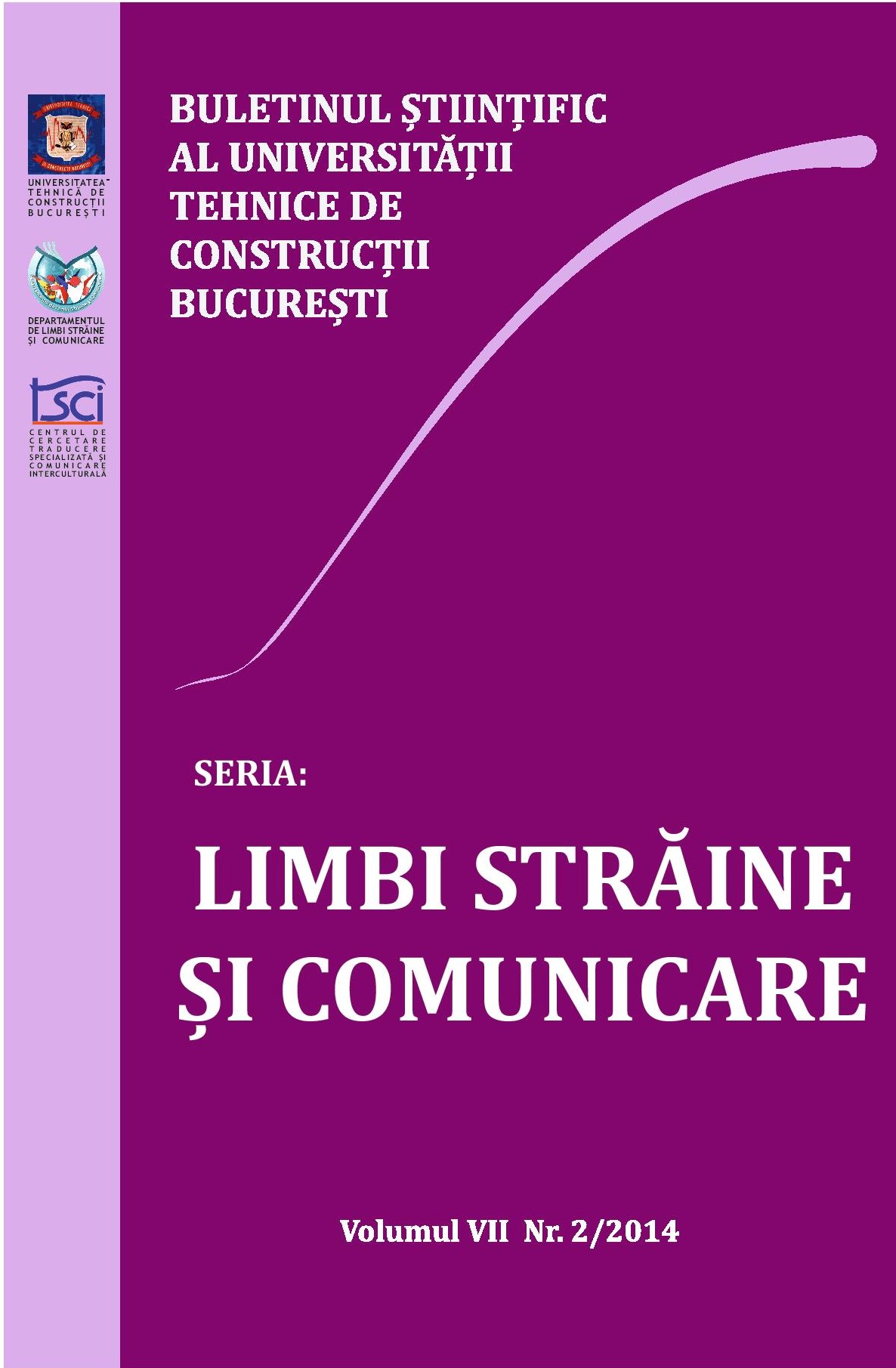
Translation Studies has crossed a tumultuous interval of theorization. But has it passed the linguistic limits instituted by a semiotician like Umberto Eco? Wouldn’t be the time to access more courageously the intersemiotic interregnum with its heterogeneous transfer of signs? As it happens in advertising, concrete poetry, tattoos, and stage or filmed version of famous texts? We have gradually accepted that in the postcolonial and cross-cultural epoch what matters is not consensus, but negotiation and understanding. We assimilated the postmodern lesson about Grand Narratives (J–F. Lyotard) and the subjectivity of recorded history. So, we have to question ourselves about the role of translation and translators in a post-industrial society which blends globalized edutainment and corporatist efficiency, prejudice, reverse colonialism and anti-establishment movements. What type of equivalence are we supposed to choose in order to persuade today? The ekphrastic approach of translations may be better tuned to out gadgetized and image-informed epoch.
More...
A politician’s discourse is shaped by both the ideological position of his party as well as his views of the world and his style interpreted as a way of being. Styles reveal identities and, in their turn, identities influence the political discourse, making it more accessible, more in tune with the position of the general public or more abstract, more remote. As a politician, Tony Blair has carved a particular style, an interesting mix of features that aims to, and often seems to reveal both the public individual and the private person. Unlike Margaret Thatcher who, in her own words, was a conviction politician, Blair claimed to be a consensus politician, able to bring together both Left Wing and RightWing values in a discourse of reconciling themes.
More...
In her novel Remarkable Creatures, Tracy Chevalier tries to retrace the representation of women in the past, by focusing on a less known problem: the contribution of two women paleontologists of the 19th century, a time when the access of women in science was forbidden. The “remarkable creatures” are not the only fossils they discover; the women themselves are seen as «curiosities» in a world dominated by men. The novel is based on a double perspective, on a dialogue between the two main characters, Elizabeth Philpot and Mary Anning, who display alternative aspects of femininity (women’s friendship, women’s role in the Victorian society, the contradiction between the two women’s free spirit expressed in science and the religious dogma of the time).
More...
In this article, emotion verbs lexicalized from derivational affix +sIn-/+sUn- in Kyrgyz Turkish are morphologically and semantically studied. It is found out that verbs, which are studied, form a wide semantic value via affix +sIn-/+s Unlexicalized from numerous substantive, base and stem and these verbs have semantic extension.
More...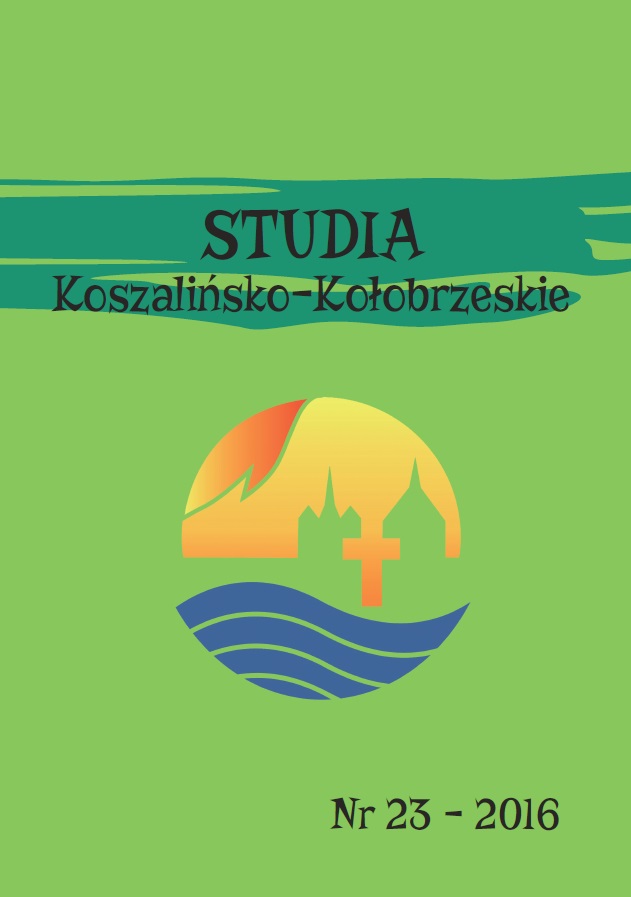
The following article focuses on the two Hebrews nouns, ʽm and gwy, in the Hebrew version of the Gospel according to St. Matthew (ShemTov). In the first three sections we present the presence of nouns ʽm and gwy in the Hebrew Bible, the Dead Sea scrolls and rabbinical literature. Then, we make a brief introduction to the Hebrew Gospel of St. Matthew (ShemTov) and we analyze the terms in the text. In MtShemTov term ʽm is ambiguous and could mean: Israel as the chosen people of God (1.21; 4.16; 13,14.15; 15.8, 27.25), a group of different peoples (10.22; 21.13 ; 24,9; 27,27), and a community of people, mostly members of Israel (3.10; 4.23; 7.28; 14.5; 14.14; 14.19; 15,30.31.33.35.36; Mc 9.25; 20.34; 21.11; 23.1; 26.5; 27.20; 27.24; 27.27; 27.64; in the construction smichut: 16,21; 21, 23; 26,3.47; 27,3.12.41; 28,12). The second noun, gwy, in MtShemTov is used to refer to the pagan nations (4.15; 10,5.18; 12,18.21; 20,19.25; 21.43; 24,7.14; 25.32). Both nouns, ʽm and gwy, are related to the problem of the relationship between Israel and the Gentiles, which may shed more light on the genesis of MtShemTov and Sitz im Leben of this text.
More...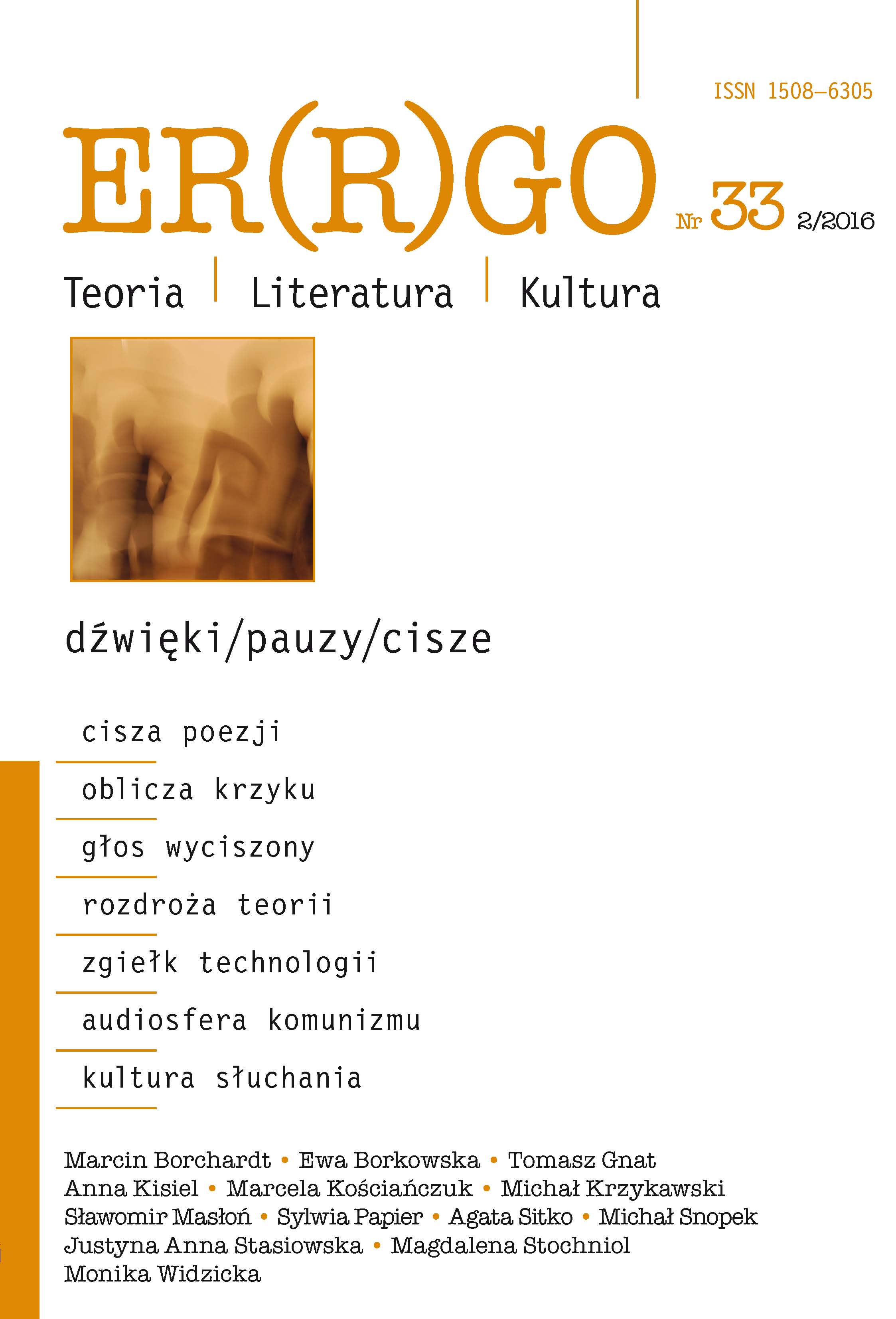
In the picture entitled “Self-portrait talking to Vince” Francesca Woodman, an American photographer, endeavoured to capture her own voice. That which had been uttered became thereby unutterable, resulting in a sequence of doodles coming out of the artist’s mouth: the chain interrupted within the frame of the photograph in its attempt to reach the listener. This picture is both the space and the reason for the confrontation of two psychoanalytical views – Lacanian and Ettingerian – on the notion of the voice. While in Jacques Lacan’s thought the voice is introduced as objet petit a, inextricably bound to the Other and desire, Ettinger – author of the matrixial theory, practising psychoanalyst, artist, feminist, and member of the Second Generation after the Holocaust – defines this concept as link a, thus emphasising the connection inspired by the prenatal encounter, its fragility and intimacy. Collating these two viewpoints and the photographic art of Woodman lets one open the potentialities of the voice in the field of visual studies and consider the relationship between this notion and the senses. Such a juxtaposition challenges the boundaries of not only photography – the medium seemingly sentenced to silence – but also theory, for which the image can provide a platform of dialogue, as it relentlessly resists the reduction to solely one perspective.
More...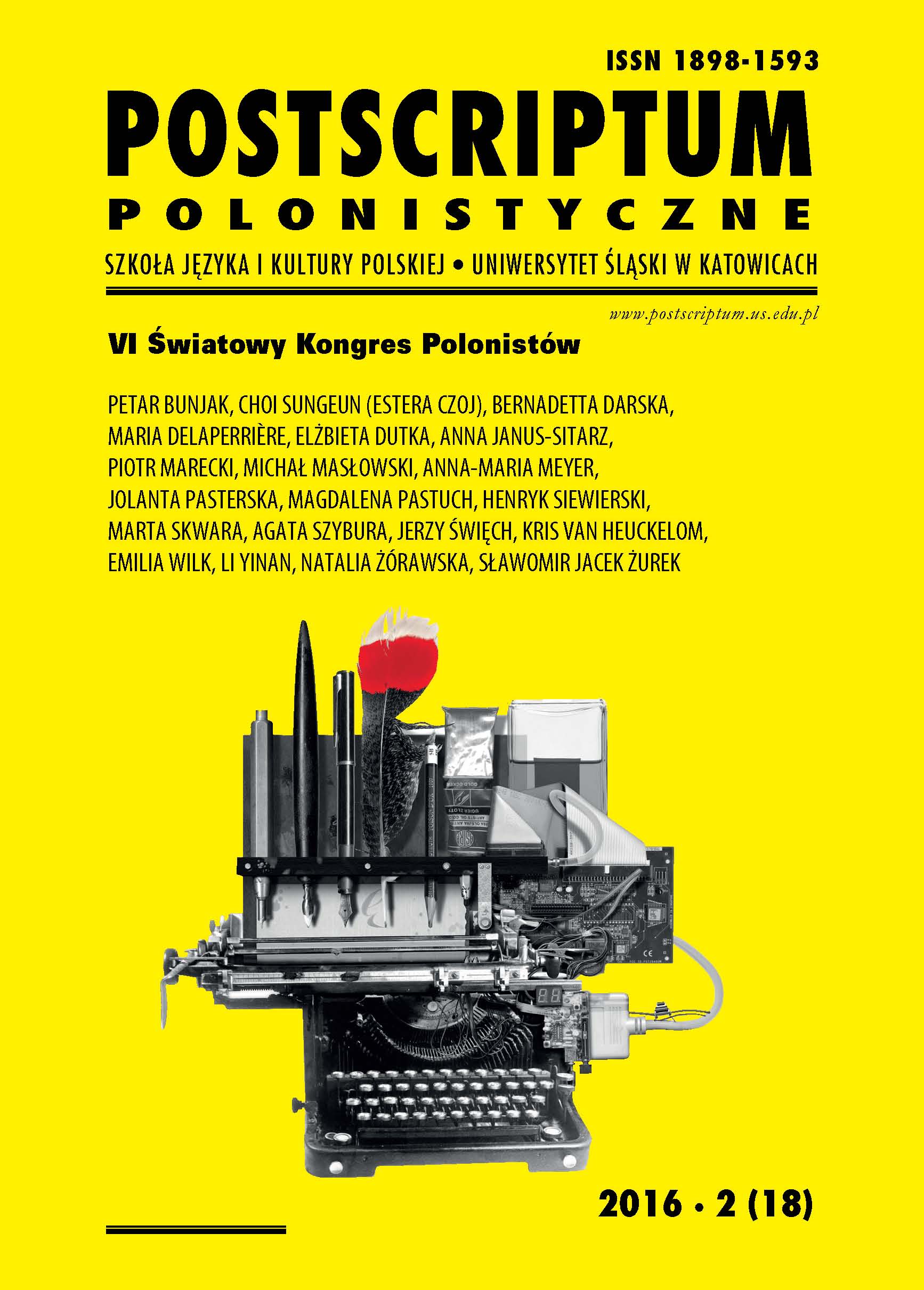
Contemporary cultural changes force Polish literary critics to constantly change their views on literature. Traditional literary canon is prone to stagnation and inertia, but multiculturalism may lead to a dangerous melting in the multiplied maze of cultural interconnections. Trying to overcome such antinomies, the author of the article focuses on the criteria that are important in the reception of Polish culture abroad. Literary canon is not regarded as a standard, but it is worth taking into consideration as an exposition of some general aesthetic, axiological and worldview changes.
More...
Translations have been an interesting part of the history of literature. What has been their function and meaning in different literary epochs? Did they promote new tendencies or influence the creativity of the writers? What has been underestimated so far is the art of translation itself, that is, the development of techniques and styles of translation according to changes in the translator’s work conditions, especially the emancipation, secularization and professionalization of the profession, so that they have been seen as equal in importance to the writers themselves. What should be analyzed are the procedures and practices of translation, which can be interpreted according to contemporary textology. The history of the art of translation is also inspired by contemporary cultural studies, because it regards translation as an institution and focuses on translation discourse, that is, the complex of images, ideas and metaphors that each translator must respect when considering their readers. The tradition of translation is partly different from literary tradition in that the rules of ‘good translation’ promoted at certain times create a codex of a translator’s work.
More...
The article aims at creating a schema that can be used to structure Polonistic linguistic research. The author suggests basic categories, such as METHODOLOGY and METHOD, SUBJECT and SOURCES. Each category, though derived from a different area has specific and relevant information. Each research project described according to such categories would be clearly depicted and placed in an appropriate position within Polonistic linguistics.
More...
There are a wide range of minority languages in Poland – including such languages as Karaite, Lemko and Romani. Polish and international linguists have been studying such minority languages and their relationship with Polish recently, but a lot remains to be done. Such languages are extremely valuable and they must be regarded by the Polonistic linguists as of importance. The article discusses in particular the case of the Romani language. The specifics of the relationship between Polish and Romani languages are discussed in comparison with the relationship between Polish and other languages in Poland.
More...
The article looks into the changing on-screen treatment of Polish immigrant characters living on ‘the Paris pavement’. The corpus of film productions under discussion includes Roman Polański’s “The Tenant” (1976), Peter Kassovitz’s “Mariage blanc” (1986), Costa Gavras’s “La petite apocalypse” (1993), Krzysztof Kieślowski’s “Trois couleurs: Blanc” (1994), Paweł Pawlikowski’s “The Woman in the Fifth” (2011) and Małgorzata Szumowska’s “Elles” (2011). As a comparative analysis of the films involved indicates, both the immigrant characters and the urban space associated with them are subject to gradual changes (although some remarkable spatial motifs, such as the balcony and the roof, make their appearance both in the older and the newer productions). If the earlier films tend to focus on the – often geopolitically connoted – marginalization and degradation of male (anti)heroes in the city’s historical center (or its immediate vicinity), then the more recent films shift focus to the urban periphery, where the Polish characters become part of what Dina Iordanova has called the ‘metropolitan multicultural margins’, along with other, economically underprivileged newcomers from various parts of the (postcolonial and post-Communist) world.
More...
The article aims at describing the genocide that happened in Cambodia. It takes into consideration its specific character and focuses on what occurred there. During the Khmer Rouge’s dictatorship not only were hundreds of thousands of people murdered (about 2.5 million victims according to different sources), but also negative symbols became connected with objects of everyday use. Such objects have become a source of memories about events which were final, inevitable and traumatic.
More...